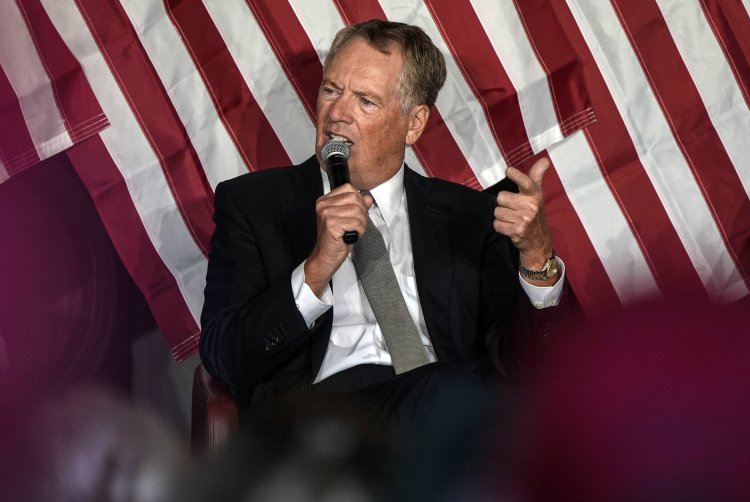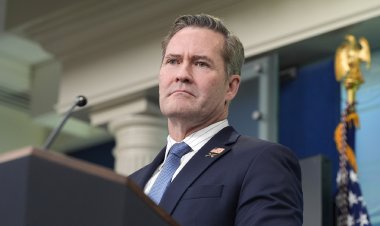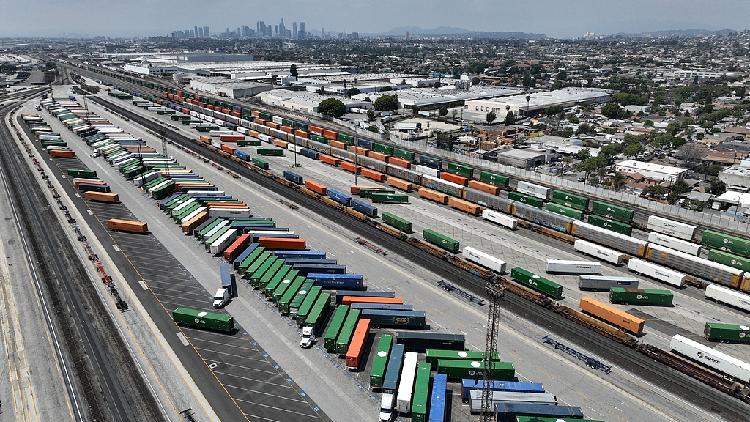Lighthizer Provides Confidential Trade-War Guidance to Canada's Conservatives
The former USTR, who supports tariffs, advised Canadians to increase their defense spending and collaborate with the U.S. in addressing challenges posed by China.

Robert Lighthizer, who served as the U.S. trade representative during Trump’s first term and is known for his pro-tariff stance, addressed a gathering of Canadian conservatives in Ottawa. He emphasized that Canada could play a significant role in repairing the strained relationship by increasing defense spending, aiding the White House in addressing challenges posed by China, and pursuing a new North American free trade agreement.
“In the final analysis, the relationship between the United States and Canada is going to be as good or better than it has ever been, and the business relationship will be fine,” Lighthizer stated, according to a recording from the closed-door meeting obtained by PMG.
Although Lighthizer is no longer involved in the current Trump administration, his insights were eagerly received in Canada, where there is a keen interest in strategies to navigate the economic challenges posed by their foremost trading partner.
“He is still relevant. I would view him as the godfather of American trade policy for this administration,” noted Jason Easton, a former trade adviser to ex-Prime Minister Justin Trudeau, who attended the event.
Easton remarked that Lighthizer’s recently published book, “No Trade is Free,” has likely become essential reading for Canadian politicians and policymakers grappling with the impact of Trump's tariffs, surpassing even Trump’s “Art of the Deal” in importance.
“His book is a must read for anyone who wants to understand the current state of affairs with America in trade, whether you agree with Ambassador Lighthizer or not,” Easton added.
During the conference, Lighthizer defended the global disruptions triggered by Trump's tariffs, while also indicating potential advantages for Canada stemming from the administration's trade strategy.
“Canadian industry and Canadian workers have suffered from this international system in much the same way ours have,” he explained.
His presence was particularly noteworthy as Canadians approach elections on April 28, with Trump’s tariffs becoming a focal point of the economic debate.
Lighthizer did not reply to requests for an interview from PMG leading up to the conference, where he joined Mark Mulroney, the son of former Prime Minister Brian Mulroney, who was instrumental in forming the original Canada-U.S. free trade agreement with President Ronald Reagan.
In his comments, Lighthizer reinforced Trump’s rationale for implementing tariffs, characterizing the U.S. as under siege from a global landscape of “freeloaders” in trade.
“We have to get to the point where the United States moves towards balanced trade,” he asserted. “There’s a million ways to look at this, but the economies of most of the world are growing because of our trade deficit, and that can’t go on forever.”
Lighthizer expressed support for renegotiating the USMCA, adding a provocative suggestion: excluding Mexico from the equation.
“It should be the United States and Canada trying to stop China and other places from coming in and taking advantage of this market,” he remarked. “There’s a big issue, … which is Chinese investment in Mexico that has to be addressed, and the Canadians ought to be on the American side of that issue.”
He also pointed out that the previous Trudeau government advocated for a six-year sunset clause in the USMCA, believing that timing would allow Canada to avoid negotiations with Trump.
Now, reflecting on the second Trump administration, Lighthizer projected that the plan to bring manufacturing back to the U.S. could actually benefit Canada.
“If the president is right, and if it works out the way it should work out, we will find ourselves with a manufacturing renaissance in America,” he noted. “It’s impossible for me to believe that that could happen and that Canada wouldn’t benefit.”
However, he emphasized that Canada must stop delaying increases in defense spending, as it has not met NATO's guideline of 2 percent of GDP, with Trump suggesting a target of 5 percent.
“Canada does not … pay a share on national defense,” he lamented. “And that’s quite unfair.”
Allen M Lee for TROIB News
Find more stories on Business, Economy and Finance in TROIB business












